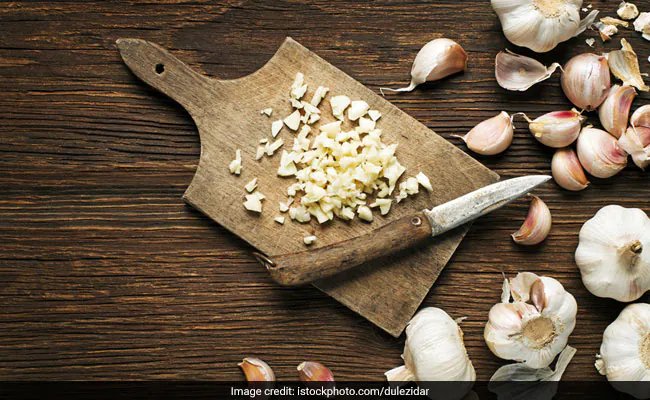Managing cholesterol is an essential part of maintaining heart health and reducing the risk of cardiovascular diseases. While medication can play a role in controlling cholesterol levels, making dietary adjustments can also have a significant impact. Incorporating heart-healthy foods into your diet can help lower bad cholesterol (LDL) and increase good cholesterol (HDL). Here are 8 things that can help keep cholesterol under control:
1. Garlic
Garlic is not only a flavorful addition to your meals, but it also boasts a range of health benefits, including the ability to lower cholesterol. Studies suggest that garlic can help reduce LDL cholesterol by inhibiting the liver’s production of cholesterol. Allicin, a compound found in garlic, has been linked to improved heart health, and regular consumption can contribute to better cholesterol levels.
2. Oats
Oats are an excellent source of soluble fiber, which binds to cholesterol in the digestive system and helps remove it from the body. Beta-glucan, the soluble fiber found in oats, is particularly effective in lowering LDL cholesterol. Starting your day with a bowl of oatmeal or adding oats to smoothies and baked goods is an easy way to improve your cholesterol profile.
3. Lentils
Lentils are a powerhouse of plant-based protein and fiber, which can help lower cholesterol levels. Like oats, lentils contain soluble fiber, which helps reduce LDL cholesterol. They are also low in fat and can be a healthy substitute for animal proteins, which tend to be higher in saturated fats. Including lentils in soups, salads, and stews can contribute to better heart health.
4. Avocados
Avocados are rich in monounsaturated fats, which can help lower bad cholesterol (LDL) while raising good cholesterol (HDL). These healthy fats, combined with the fiber in avocados, make them an excellent choice for controlling cholesterol levels. Eating half an avocado a day can help reduce total cholesterol levels and improve heart health over time.
5. Nuts
Nuts, including almonds, walnuts, and pistachios, are packed with heart-healthy fats, fiber, and plant sterols, which help lower LDL cholesterol. Walnuts, in particular, are high in omega-3 fatty acids, which have been shown to reduce cholesterol levels and improve heart health. A small handful of nuts as a daily snack can be an effective way to manage cholesterol.
6. Olive Oil
Olive oil is another excellent source of monounsaturated fats, which have been proven to lower LDL cholesterol levels. Replacing butter or other saturated fats with olive oil in your cooking can have a positive impact on cholesterol control. Extra virgin olive oil is particularly beneficial due to its high antioxidant content, which helps protect the cardiovascular system.
7. Apples
Apples are rich in soluble fiber and pectin, both of which help lower cholesterol. The fiber in apples binds to cholesterol in the intestines, preventing its absorption into the bloodstream. Eating an apple a day may help reduce both total cholesterol and LDL cholesterol, making it a heart-healthy snack.
8. Fatty Fish
Fatty fish, such as salmon, mackerel, and sardines, are rich in omega-3 fatty acids, which are known to reduce cholesterol levels and inflammation. Omega-3s help lower triglycerides and increase HDL cholesterol, contributing to overall heart health. Consuming fatty fish two to three times a week can help manage cholesterol levels effectively.

Conclusion
Incorporating these cholesterol-lowering foods into your diet can help you manage cholesterol levels and improve overall heart health. Along with a balanced diet, regular physical activity and lifestyle changes such as avoiding smoking and reducing alcohol consumption are also important for maintaining a healthy cholesterol profile. By making these small but impactful changes, you can help protect your cardiovascular health and reduce your risk of heart disease.

